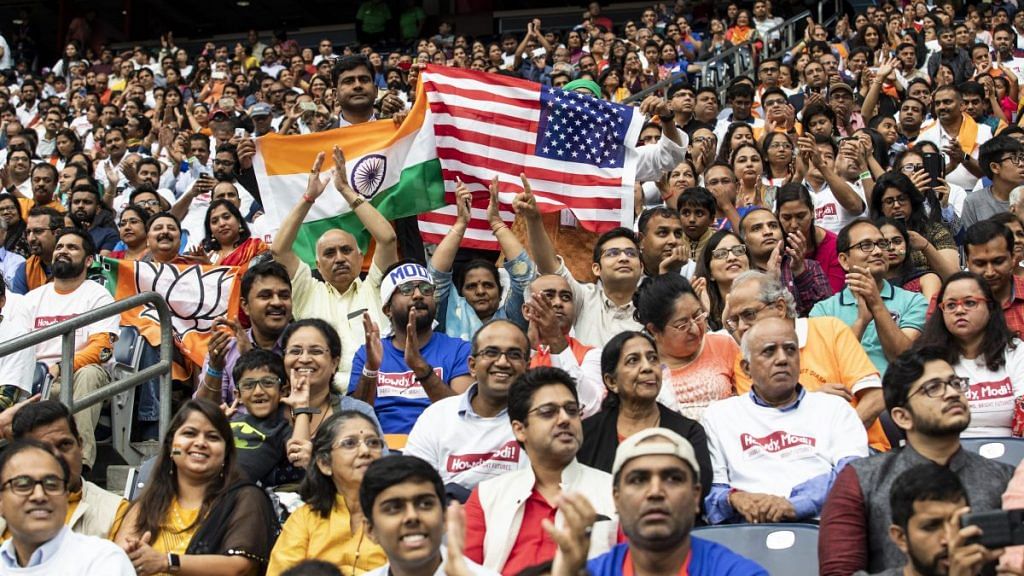As Abhijit Banerjee’s Nobel Prize was announced, a reporter in Kolkata asked his mother about his citizenship, pointing out that he became a US citizen in 2017. “He travels a lot,” his mother explained.
The Indian passport ranks a poor 86 as of 2019, down from 77 in 2010. This rank signifies how many countries give visa-free entry or visa-on-arrival to the passport-holder. With a large number of poor people, India is one of the world’s biggest sources of illegal immigrants (311 Indians have just been deported from Mexico). Developed countries are not going to give the Indian passport easy access into their airports anytime soon, no matter how much of a world ‘power’ anyone thinks India has become.
It is for this reason that talented and wealthy Indians who travel frequently and live abroad tend to take foreign citizenship. The act of taking foreign citizenship, for most Indians, is not ‘anti-national’ but a matter of convenience. Anyone who has filled up a US or UK visa form will empathise.
Between 2014 and 2017, 4.5 lakh Indians opted for citizenship of another country. As foreign countries offer easy citizenship in exchange for cash and investments, the trend is only set to grow.
It is plain silly for the Indian government to not offer dual citizenship to such Indians. Eighty-five countries in the world offer dual citizenship. India needs to join this long list to avoid embarrassments such as an Indian winning the Nobel Prize but not being an Indian citizen.
Also read: Abhijit Banerjee’s Nobel in the US: Is it a comment on the quality of Indian institutions?
Overseas unCitizen of India
India does offer something called the “Overseas Citizen of India” card. Yet, these “overseas citizens” are not citizens because India doesn’t have the option of dual nationality.
The OCI status amounts to partial citizenship. It removes all barriers to entering, exiting, living and working in India. What it doesn’t allow is the right to vote.
If you don’t like Abhijit Banerjee, think of Akshay Kumar. At some point in his life, the Bollywood actor took Canadian citizenship, probably to enable easy international travel. At another point in his life, he decided to re-brand himself as a great nationalist from an action hero, because that was the flavour of the season. As people questioned how his nationalist credentials could go hand-in-hand with his Canadian citizenship, Akshay Kumar claimed it was an honorary citizenship, a lie that was nailed.
Had India allowed Akshay Kumar to call himself a dual citizen, vote in elections, have an Indian passport alongside his Canadian passport, what would happen? Would the heavens fall? Would it cause climate change?
It is an emotionally difficult decision for most people to give up their Indian passport, often for easier international travel or to pay lower taxes or benefit from the social security services in countries where they live. For both taxation and national pride, it would help India to let Indians have dual citizenship.
Also read: Akshay Kumar’s Canadian roots go deeper — from campaigning for a PM to owning mansion there
Addressing intricacies
Narendra Modi and Donald Trump recently addressed thousands of Indian Americans in Houston, Texas. Some in the crowd must have had Indian passports and some must have had American passports. For neither Modi nor Trump, there seemed to be any conflict of interest. For both leaders, the crowd could have dual allegiance, to both India and the United States, at the same time.
No wonder a recent survey has shown that Indian Americans are in favour of dual citizenship. However, Vijay Chauthaiwale, head of the Bharatiya Janata Party’s foreign cell, has ruled out the possibility of India granting dual citizenship. “There are a lot of intricacies involved (in dual citizenship). So, I don’t see that happening in the near future,” he has reportedly said.
Many countries have found a way around the technical issues involved. Bangladesh requires its citizens to obtain a “dual nationality certificate” so that it can control who gets to take dual citizenship and under what circumstances. Brazilians can acquire another country’s passport but they must enter and exit Brazil only on the Brazilian passport. Canada actually encourages dual citizenship; the US discourages but allows it. If the concern is security, one can look at Pakistan, which allows its citizens to hold dual citizenship of only 16 other countries, doesn’t let dual citizens run for public office or join the military. Signing dual citizenship agreements with other countries helps prevent its misuse.
Blood ties
There are no ‘intricacies’ that can’t be addressed. The main issue, however, is nationalism. Allowing dual citizenship in India seems unthinkable because it would hurt national pride. Our nationalism is monogamous, it demands exclusive love. But the world is increasingly polygamous. One can love two countries, or maybe three — some countries even allow multiple nationalities.
The countries that allow dual citizenship belong to both the developed and the developing world. They do so because they realise it is the wise choice in a globalised world of easy travel. Narendra Modi often tells ‘Overseas Citizens of India’ that blood ties matter more than the colour of the passport.
Exactly. So why not let people have different passports of different colours. If Akshay Kumar can be a Canadian citizen and an icon of hard Indian nationalism, if Abhijit Banerjee can be a US citizen and still make India proud, it is time for India to accept dual nationality.
It might just also make us go easy on our jingoism.
Also read: Indian passport less powerful than Brazil, Russia and China, ranks a poor 86th globally
Views are personal.
